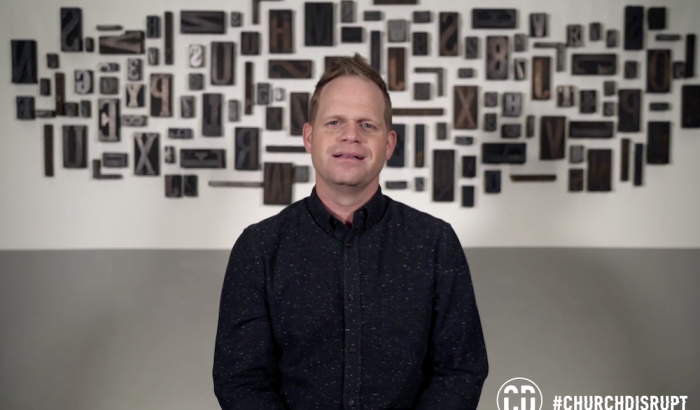Atlanta pastor talks church being 'disrupted,' people seeking convenience

At a time when people are looking for convenience more than anything else, churches can no longer sit back and wait for people to enter their doors, says an Atlanta pastor.
“We have to think like church planters. We have to go take the Gospel to people,” said Clay Scroggins, lead pastor of Buckhead Church, which is part of North Point Ministries. “No longer are the days where we can sit back and use the same phraseology that 'Field of Dreams' had — if you build it, they will come.”
Scroggins was part of Wednesday’s first Church Disrupt conference, led by Pushpay, which drew thousands of church staff and leaders. The online event was not organized in response to the coronavirus pandemic but was in the works since October to address ministry problems, including technology, leadership and burnout.
Over the last few years, Scroggins said he had noticed attendance declining at Atlanta-area churches. But at the same time, “the churches were showing signs of health,” in terms of people joining groups, serving at church and giving.
A similar trend was seen among businesses. A former Home Depot CEO told the pastor that physical locations had been seeing fewer footsteps into the stores but overall, sales were increasing as more people ordered online. The explosion of food delivery services also prompted more businesses, including Starbucks, to jump on the delivery bandwagon.
“The world has changed. The need of the customer has changed,” Scroggins noted.
“We used to offer community, we offered a relationship between the barista and the customer. We offered the opportunity for relationship between the customer and other customers. But now convenience is trumping community in a way that it never has before.
“If that’s true for Starbucks, it’s true for you and it’s true for me as well. It’s true for our churches.”
What the Atlanta pastor has observed at his church was that even though people were coming less frequently, they were “more engaged than ever before” and growing in their relationship with Jesus.
“The model of our church has been disrupted,” he emphasized.
People are no longer being introduced to a church by entering its doors and attending a service. More and more are choosing to check out a church’s social media pages and watch a service online before making next steps.
“Why? For the same reason that Starbucks is delivering coffee — because it’s more convenient,” said Scroggins.
“It’s not that they don’t want community; they just prefer convenience.”
When discussing the issue of digital church, the Buckhead Church pastor said some church leaders tend to push back, assuming that he’s arguing that physical churches no longer have value.
However, Scroggins emphasized that “the physical church has a greater meaning today than it ever has before. But it’s changing rapidly. It’s being massively disrupted just like education has been disrupted, … just like food service has been disrupted.”
“The great news about where we are in history, God has given us one of the most massive technological advances that we’ve ever seen to go take the Gospel into people’s homes.”
Scroggins recommended that churches make a few shifts to respond to the rapidly changing world. They include shifting more resources to digital platforms and building pathways from those platforms to community.
“What are you doing to create frictionless digital pathways from every channel that you sent out content so that people can go from click to community?” he asked.
Churches should also create digital communities where people can grow spiritually, he said.
“We know as the church that the best way people can grow spiritually really hasn’t changed — by opening up the Bible in community, discussing it with others, being challenged by each other and praying for each other, for people that are in need, for the needs of the community.”
Face-to-face community will always be the best way to do ministry, he underscored.
“But in the world that we live in today, we have so much room to grow before we get there.”
Scroggins used the example of dating apps, noting that they’ve changed the game of dating as one of the most popular ways couples meet.
“You know how it still ends up? It still ends up with two people sitting at a restaurant,” he noted. “But the dating apps have changed the way we get there.”
Face to face is “what we’re aiming for” but “we can get there in a whole different way” and can even get more people to that place through technology, he said.
Other speakers featured at the Church Disrupt conference included Louie Giglio of Passion City Church, Judah Smith of Churchome, Horst Schulze, co-founder of The Ritz-Carlton, Chad Veach of Zoe Church, and Carey Nieuwhof of Connexus Church.





























